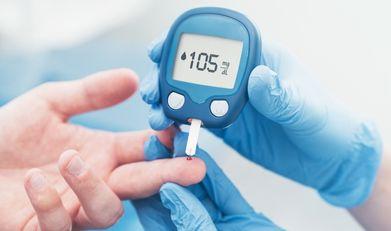

01 Mar, 2023
What Is Diabetes?
According to Ayurveda, Diabetes is a disease that causes your blood sugar level to rise above normal. Blood sugar is one of the main sources of energy that comes from the food you eat. However, for that energy to form, you need insulin to convert glucose into energy. When your body does not make enough insulin, glucose stays in your blood and doesn’t reach your cells. This causes diabetes.
One of the major causes of diabetes, as described by Ayurveda, is a poor diet. Diets that are heavy on sweets, sugar, dairy products, alcohol, fat, and slices of bread are deemed unhealthy and not recommended. In other cases, diabetes can also be caused due to obesity, excessive sleep, lack of exercise, excessive sex, stress, anxiety, or even heredity.
Today, 77 million adults are living with diabetes in India. And it’s no surprise that the numbers are predicted to increase to 134 million by 2045.
What are the Symptoms & Signs of Diabetes?
Let us learn about some of the signs of diabetes that can help you identify if you have symptoms of the disease.
You may be suffering from diabetes if you:-
What are the risk factors of Diabetes?
You are more likely to get Type 1 Diabetes as a child or teenager if anyone in your family already has it.
Your chances for Type 2 Diabetes increase when you are:
You have a higher risk of gestational diabetes (diabetes during pregnancy) if you:
What are the types of diabetes?
There are several types of diabetes. The most common forms include:-
Type 1 diabetes:- This type is an autoimmune disease in which your immune system attacks and destroys insulin-producing cells in your pancreas for unknown reasons. Up to 10% of people who have diabetes have Type 1. It’s usually diagnosed in children and young adults, but it can develop at any age.
Gestational diabetes: This type develops in some people during pregnancy. Gestational diabetes usually goes away after pregnancy. However, if you have gestational diabetes, you’re at a higher risk of developing Type 2 diabetes later in life.
Type 2 diabetes:- With this type, your body doesn’t make enough insulin, and/or your body’s cells don’t respond normally to the insulin (insulin resistance). This is the most common type of diabetes. It mainly affects adults, but children can have it as well.
Prediabetes: This type is the stage before Type 2 diabetes. Your blood glucose levels are higher than normal but not high enough to be officially diagnosed with Type 2 diabetes.
How common is diabetes?
Diabetes is common. Approximately 37.3 million people in the United States have diabetes, which is about 11% of the population. Type 2 diabetes is the most common form, representing 90% to 95% of all diabetes cases. About 537 million adults across the world have diabetes. Experts predict this number will rise to 643 million by 2030 and 783 million by 2045.
What are the additional ways to control diabetes?
FAQs
1. What is the best treatment for diabetes?
Diabetes is a health concern that needs special care beyond medicine. Your lifestyle choices, eating habits, and the amount of exercise you do each day determine how harmful diabetes can be for you. To keep yourself healthy, it’s advisable to maintain a healthy diet, exercise daily, practice specific yoga asanas for diabetes, and use Kamal Madhu or Diaba Treat concerns and prescribe herbs.
2. Is banana good for diabetes?
Banana has a low glycemic index. This means it is helpful and safe to consume for diabetics and can be had since it provides nutrients like potassium and magnesium. However, it must be eaten in moderation. If you would like to go for a more systematic approach to helping to manage diabetes, Ayurvedic Kamal Madhu or Diaba Treat Syrup for diabetes prescribed by Dhanwantri Pharmaceutical is good for you.
3. What foods will lower blood sugar quickly?
There are certain foods that can help in reducing blood sugar levels. Jamun/Jambu fruit has more than 80% water content and does not have sucrose in it. Jamun has alkaloids that help reduce blood sugar levels. You can consume Jamun fruit regularly. Amla or Indian gooseberry has chromium that helps regulate carbohydrate metabolism. It helps to reduce blood sugar levels. Amla can be eaten as a fruit or jam or Rasanaya. Bitter gourd or Karela is a vegetable that can be used to make tasty dishes. Vegetables can help regulate blood sugar levels. Drinking its juice can be very beneficial.
4. Can Ayurvedic treatments cure diabetes?
Diabetes is a non-curable lifestyle disorder. However, you may control blood sugar levels with lifestyle changes and medications. Ayurvedic treatments, on the other hand, help cure diabetes type-2. Diabetes and its symptoms get minimized in patients who have been consistent with Ayurvedic medicines for treating diabetes.
5. How can I treat diabetes without allopathic medicines?
Yes, You can treat diabetes using Diaba Treat because our treatment focuses majorly on treating the root cause of the disease and helps reduce the symptoms and side effects caused by allopathic medicines.